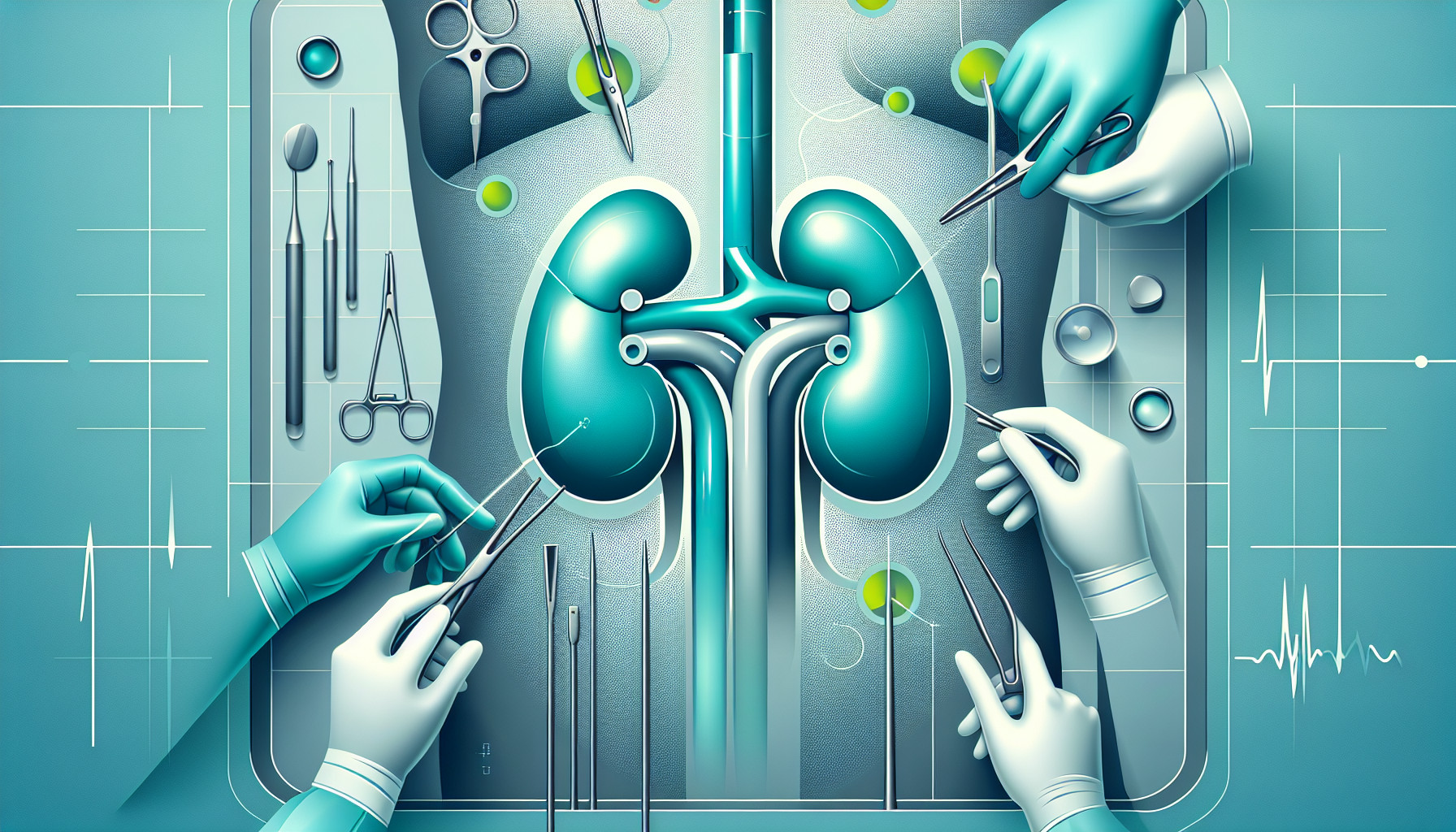Our Summary
This research paper explores how obesity affects kidney transplantation. Nowadays, more people who are donating or receiving kidneys are obese. This is a problem because obesity can lead to complications during and after the transplant surgery. It can also cause health issues in the long run which can jeopardize the patient’s life and the survival of the transplanted kidney. Despite these risks, kidney transplants still offer significant benefits to recipients who have severe kidney disease. As for the donors, it’s important that they are aware of the potential risks linked to obesity. They should be encouraged to lose weight before the donation and keep it off afterwards to minimize these risks and ensure their own safety.
FAQs
- How does obesity affect kidney transplantation?
- What are the potential complications of kidney transplantation in obese individuals?
- What steps can potential kidney donors take to minimize risks associated with obesity?
Doctor’s Tip
One helpful tip that a doctor might tell a patient about kidney transplant is to maintain a healthy weight and lifestyle. This can help improve overall health and reduce the risk of complications before and after the transplant surgery. Additionally, following a balanced diet, staying physically active, and avoiding smoking and excessive alcohol consumption can also improve the success of the transplant and the long-term health of the transplanted kidney. It’s important for patients to work closely with their healthcare team to develop a personalized plan for managing their weight and overall health to optimize their outcomes after a kidney transplant.
Suitable For
Patients who are typically recommended for a kidney transplant include those with end-stage renal disease (ESRD) or chronic kidney failure who are not able to maintain a good quality of life with dialysis treatments. These patients may have conditions such as diabetes, hypertension, or autoimmune diseases that have severely damaged their kidneys. They must also be healthy enough to undergo the surgery and post-transplant care.
In addition, patients who are younger and have fewer comorbidities are often considered good candidates for kidney transplantation. This is because younger patients tend to have better outcomes and longer survival rates after the transplant. Patients who are able to adhere to a strict medication regimen and follow-up care plan are also more likely to be recommended for a kidney transplant.
It is important for patients to be evaluated by a transplant team to determine if they are suitable candidates for a kidney transplant. This evaluation will assess the patient’s overall health, medical history, and potential risks and benefits of the transplant. Patients who are obese may be advised to lose weight before the transplant to reduce the risk of complications during and after the surgery.
Overall, kidney transplantation can offer a better quality of life and improved survival for patients with severe kidney disease. However, it is important for patients to understand the potential risks and benefits of the procedure and to follow their healthcare team’s recommendations for a successful outcome.
Timeline
Before kidney transplant:
- Patient is diagnosed with severe kidney disease and is referred to a transplant center
- Patient undergoes a series of tests and evaluations to determine if they are a suitable candidate for a transplant
- Patient is placed on a waiting list for a suitable donor (living or deceased)
- Patient undergoes dialysis to help filter waste and excess fluids from the blood, as the kidneys are no longer functioning properly
- Patient may experience complications from their kidney disease, such as high blood pressure, anemia, or electrolyte imbalances
After kidney transplant:
- Patient receives a new kidney from a living or deceased donor through surgery
- Patient is closely monitored in the hospital for any signs of rejection or complications
- Patient takes immunosuppressant medications to prevent rejection of the new kidney
- Patient undergoes regular follow-up appointments and tests to monitor kidney function and overall health
- Patient may experience side effects from the medications, such as increased risk of infections or high blood pressure
- Patient is encouraged to maintain a healthy lifestyle, including regular exercise and a balanced diet, to ensure the long-term success of the transplant.
What to Ask Your Doctor
- What are the risks and complications associated with kidney transplant for someone who is obese?
- How does obesity impact the success rate of the transplant surgery?
- What steps can be taken to minimize the risks associated with obesity before and after the transplant surgery?
- Are there any specific dietary or lifestyle changes that should be made to improve the outcome of the transplant for someone who is obese?
- How can obesity affect the long-term health and function of the transplanted kidney?
- What are the potential risks for the donor if they are obese at the time of donation?
- Are there any specific criteria or guidelines for weight loss that should be followed before donating a kidney?
- How can the medical team support and monitor the health of both the recipient and donor throughout the transplant process if obesity is a factor?
- What are the chances of complications or rejection of the transplanted kidney if the recipient or donor is obese?
- Are there any alternative treatment options or modifications to the transplant procedure that should be considered for obese patients to improve their outcomes?
Reference
Authors: Bentata Y. Journal: Exp Clin Transplant. 2021 Apr;19(4):287-296. doi: 10.6002/ect.2020.0074. Epub 2020 Jul 6. PMID: 32635886
